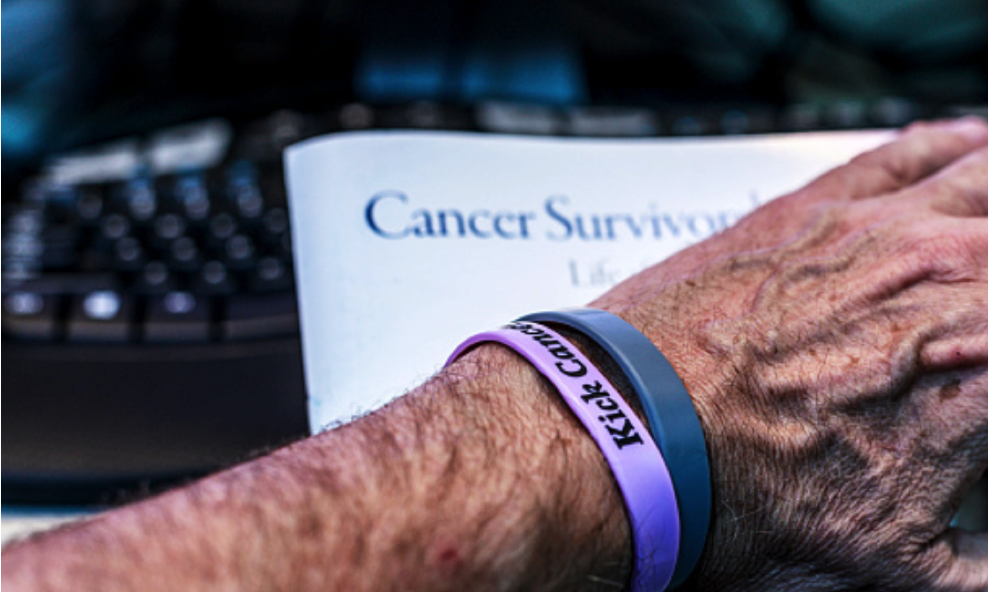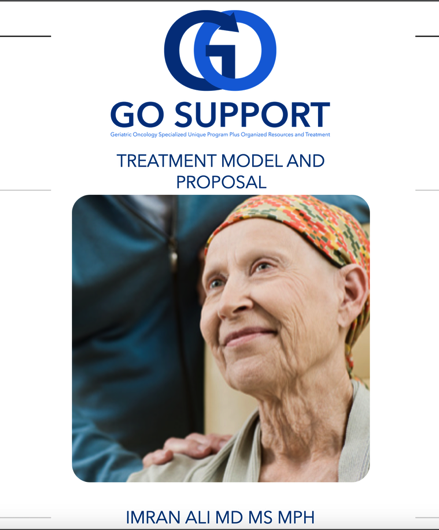
Age Is Not A Barrier
to Treatment
Cancer in the Older Adult Needs a Different Approach
As a Resident in Internal Medicine I was fascinated by malignancy and the science behind Hematology/Oncology yet I was noted by my supervising physicians that I had also mastered the psychosocial aspects of medicine and was very involved in the care of older adults. I had often spent additional time with families and addressed caregiver issues. It was at this time I switched my focus onto the unique needs and challenges faced by older adults diagnosed with malignancy. Once I had connected with Geriatric Oncologists at Memorial Sloan Kettering Cancer Center where I arranged for an elective rotation as a Geriatric Fellow I simply knew that this was the field for me. I had also had the opportunity to meet and connect with many geriatric oncologists at the SIOG (International Society of Geriatric Oncology) meetings and this also fueled my interest in research as well. Currently I am exploring cognitive deficits and other functional deficits that arise from chemotherapy and more newer immunotherapy regimens. The reason why I would like to be considered for the Advance Course is I would like to be able to be an advocate for my patients and work alongside Oncologists in co managing older adults with cancer. I believe that I can become better versed in the basic principles of Oncology through this course and that i will be able to make better contributions. Additionally I would like to understand some of the science so that I can understand how treatment options can be tailored to my patients.
© 2023 IMRALI Enterprises All Rights Reserved.
Navigation

Life expectancy is increased to where the World Health Organization (WHO) estimates that it will certainly exceed age 80 in developed countries. In the United States alone it is estimated that the number of older adults will double by 2060 reaching almost 100 million.According to the US National Cancer Institute’s Surveillance Epidemiology and End Results (SEER) Database over 50% of new malignancies are diagnosed in those over the age of 70. Age however is no longer found to be an independent factor in poor outcomes. In fact the old paradigm of the elderly patient with cancer is changing. Older adults are more variable with regard to their co morbidities and physiological reserve. Simply judging someone by their chronological age instead of taking of comprehensive view is depriving families and their loved ones effective treatment options that do not necessarily have to reduce quality of life and can still improve progression free survival.
Newer options such as Immnunotherapy, intensity modulated radiation therapy and targeted therapy have been shown to have a tolerable side effect profile. Nonetheless, there is no universal treatment modality that can be applied to all older adults as this group of patients have unique challenges. These challenges go well beyond the basic co morbid conditions that can be present in almost any average individual. It includes the added pressure to examine the variable of age on both physical and neurocognitive function. The science of aging is a very complex interplay between different molecular and physiological processes which are still not completely understood as some patients undergo what we call “healthy aging” while others do not. That is why an individualized approach needs to be taken to each older adult diagnosed with malignancy. Treatment can be tailored based on careful evaluation using the principles of Geriatric Medicine. Simply relegating older adults diagnosed with malignancy as cases suitable for palliative care without full consideration for tailored treatment and support options is no longer acceptable.
However, the converse is also true, over aggressive treatment with cytotoxic agents used in the general population can lead to very poor outcomes. Treating the “disease” as opposed to treating the patient can have dire consequences on quality of life. This can render older adults with severe disabilitieswhich often leads to more psychosocial stress then the original diagnosis itself. Geriatric Medicine akin to Pediatric Medicine involves the input and counseling of families who play an integral role in the patient’s lives. This may also involve careful decision making regarding advanced directives and goals of care where ultimately a palliative approach is adopted. Taking care of the older adult takes certain expertise not only in the Comprehensive Geriatric Evaluation but also in also managing survivorship issues that arise well after treatment is completed.
CLICK ON IMAGE
FOR MORE
Sample Comprehensive Geriatric Asessment


